Home » The Case of Lai Chi Wo
Sustainable Agriculture and its Implementation in Hong Kong
The Case of Lai Chi Wo
Lai Chi Wo, a historic Hakka agricultural village in Hong Kong, previously abandoned for decades, has been undergoing an agricultural-led revitalisation. The Policy for Sustainability Lab has been conducting a rural-urban collaborative rural sustainability programme at Lai Chi Wo since 2013 and the programme has restored six hectares of agricultural wetlands and open farmlands. This session briefly introduces the sustainable agriculture approach adopted in Lai Chi Wo and presents the views of some stakeholders involved.
Biodiversity Conservation
Desertion and a lack of active management had resulted in biodiversity loss in Lai Chi Wo. Agricultural freshwater wetlands had dried out and been covered by shrubs. Paddy rice was strategically selected as the main crop for agricultural rehabilitation, enhancing the wetland habitat in Lai Chi Wo. Before resuming farming activity, a plant survey was conducted in order to avoid possible adverse environmental impact during farm setup stage. Trees with dbh (diameter at breast height) larger than 95mm (about 80 trees) were retained for agroforestry trials. Rare species such as Water Fern (Ceratopteris thalictroides) found were transplanted outside the farming area for ex-situ conservation. A comprehensive biodiversity baseline was established to enable better assessment of farming impact and inform long-term habitat management. Among the eight taxa monitored by the programme, the abundance of the Chinese Bullfrog, a class II protected species in China, has been enhanced.
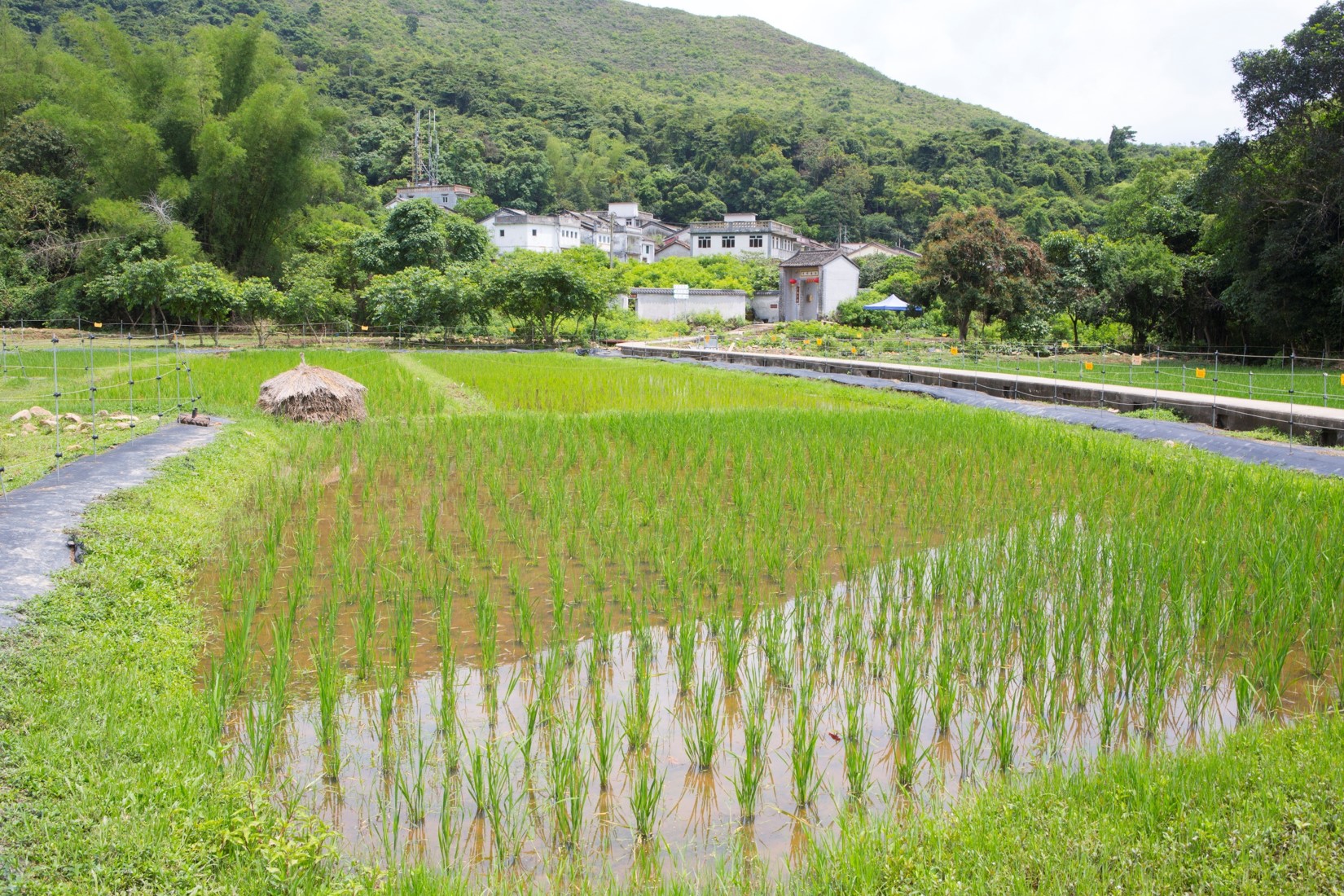
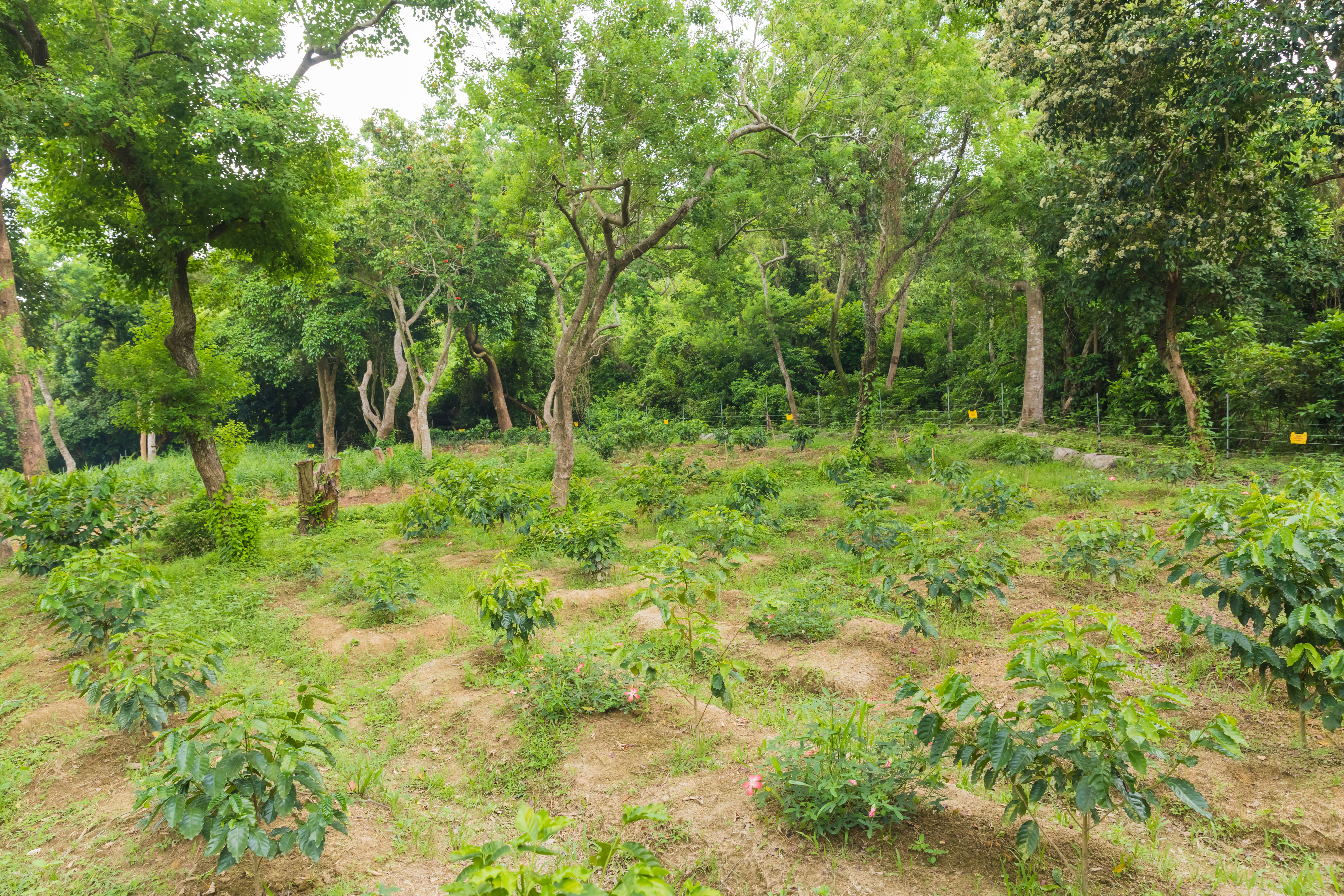
Multiple Cropping
After the long hiatus in farming, the land had become infertile and overrun with weeds. The land being located in a hot and humid valley with insufficient ventilation also gave rise to pests and diseases. Multiple cropping has been adopted to tackle these issues. More than fifty crop species were planted and tested in the fields. Many different species are intercropped, for example, chilli/ginger-papaya intercropping and ginger-maize intercropping. Coffee is also grown under retained forest trees as agroforestry approach to provide habitat complexity and also protect from soil erosion.
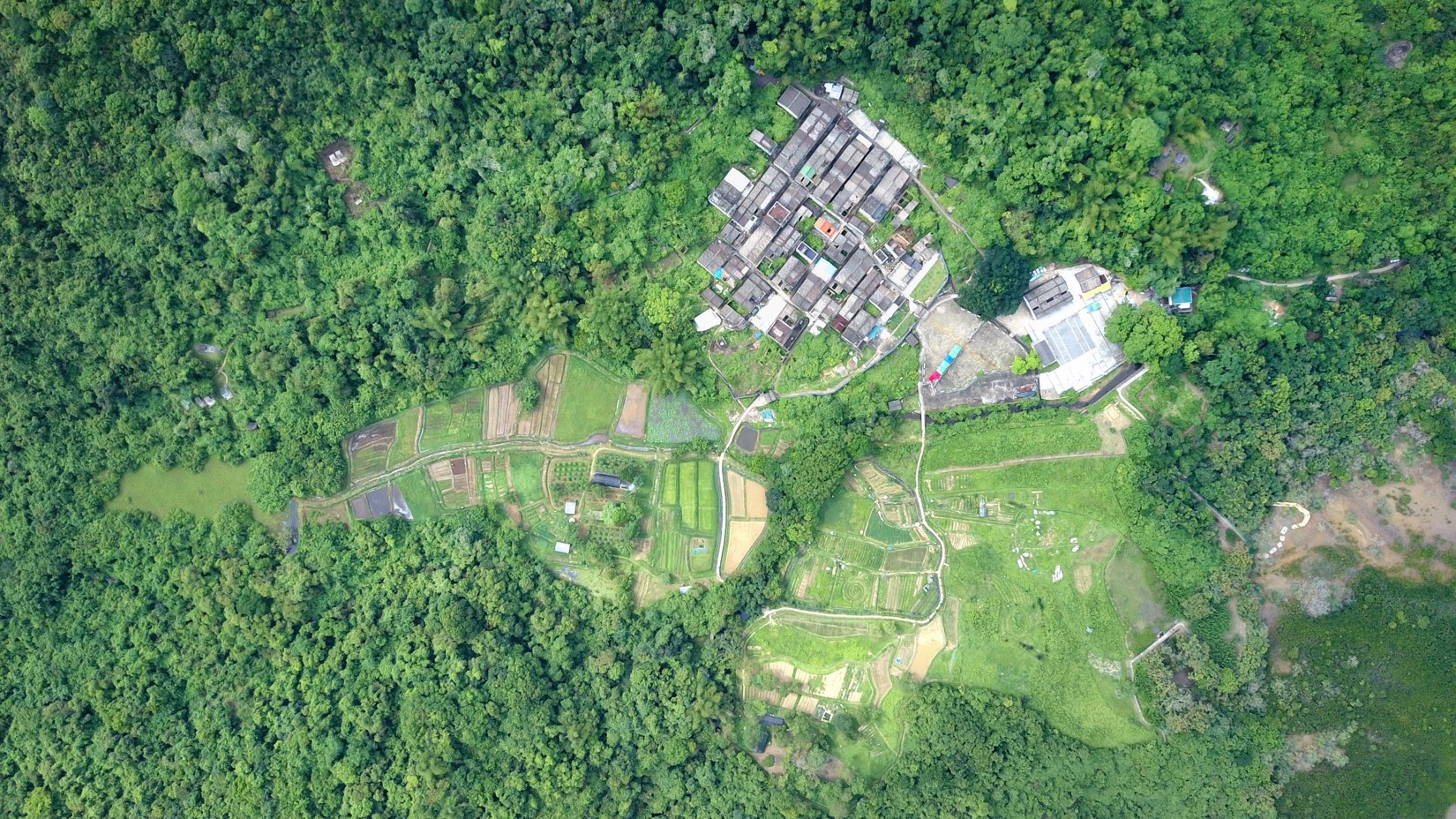
Soil Conservation with Green Manure
Green manure can increase the organic matter content in soil, control the growth of weeds and prevent diseases and pests. Chinese milk vetches, buckwheat, alfalfa, soybean and Mexican aster were planted as green manure in rotation with main crops.
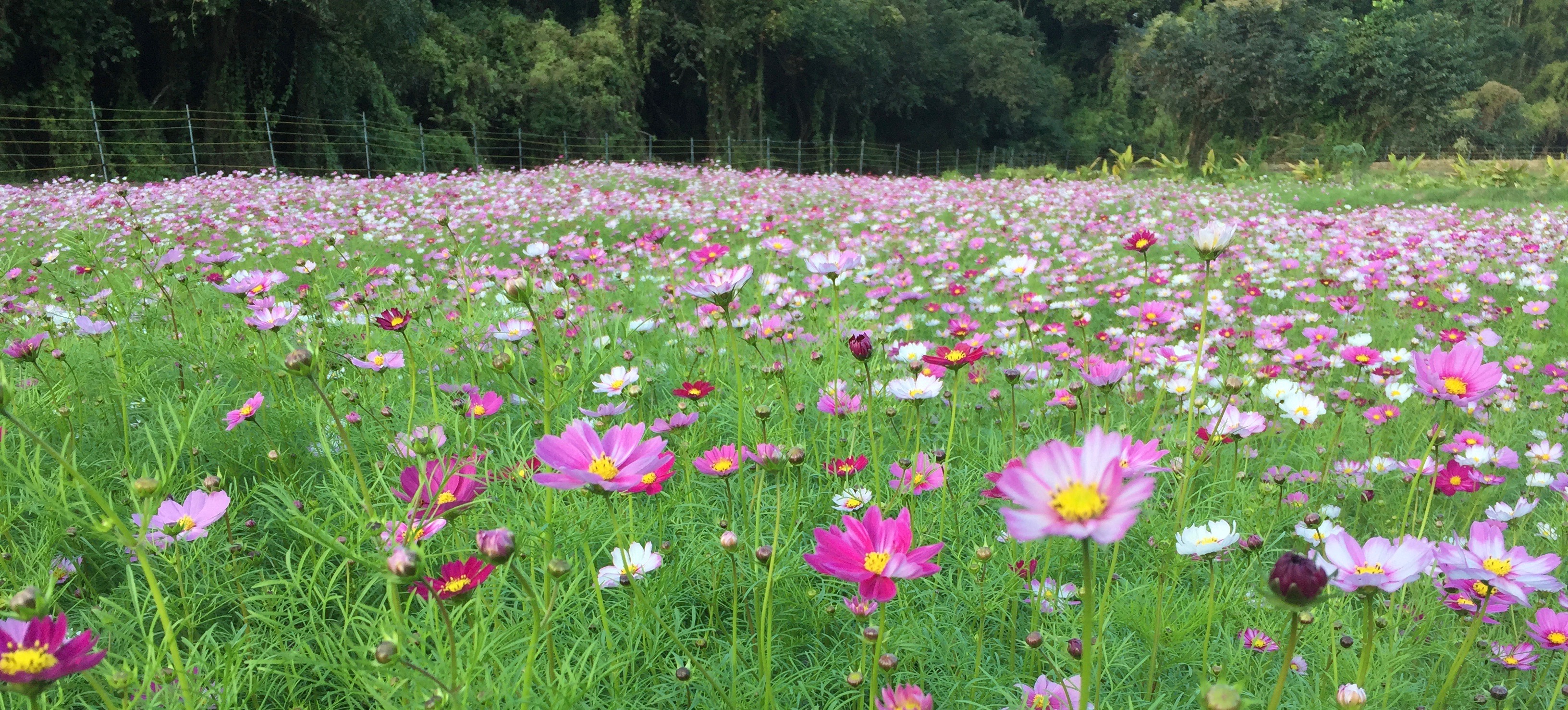
Low-impact Pest Control Measures
Some low impact pest control measures are implemented to protect crops from their predators. For example, small-scaled solar-powered electric fences are used to deter stray cattle and wild boar from entering the field and bird nets were used to cover up part of the golden paddy fields.
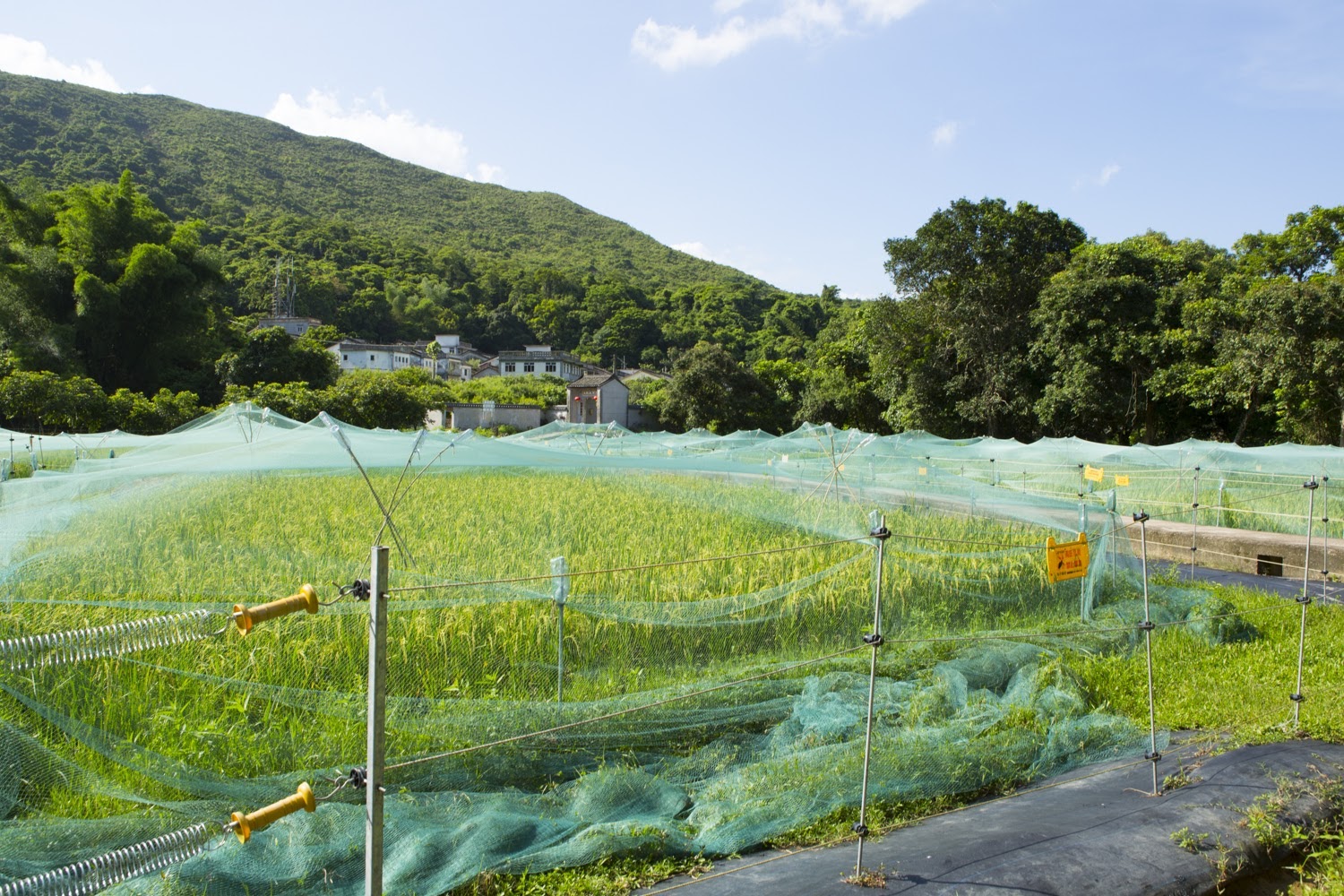
Source: Christina YM CHAN
Rural Livelihood Enhancement
The programme also launched the “Three Dous” Incubation Scheme to encourage the establishment of community farms. The scheme has brought together indigenous villagers and urban dwellers to incubate agricultural and rural start-ups, generating income from eco-farm produce and products, and promoting sustainable consumption and production. Produce and products such as turmeric products, pickled mustard leaves, ginger soap, and kale powder are promoted locally to villagers and visitors at the Lai Chi Wo Farmers’ Market and on outreach markets organised by the government and retail partners. These have improved the rural livelihood and there are now more than 20 inhabitants living and working in the village on a regular basis.
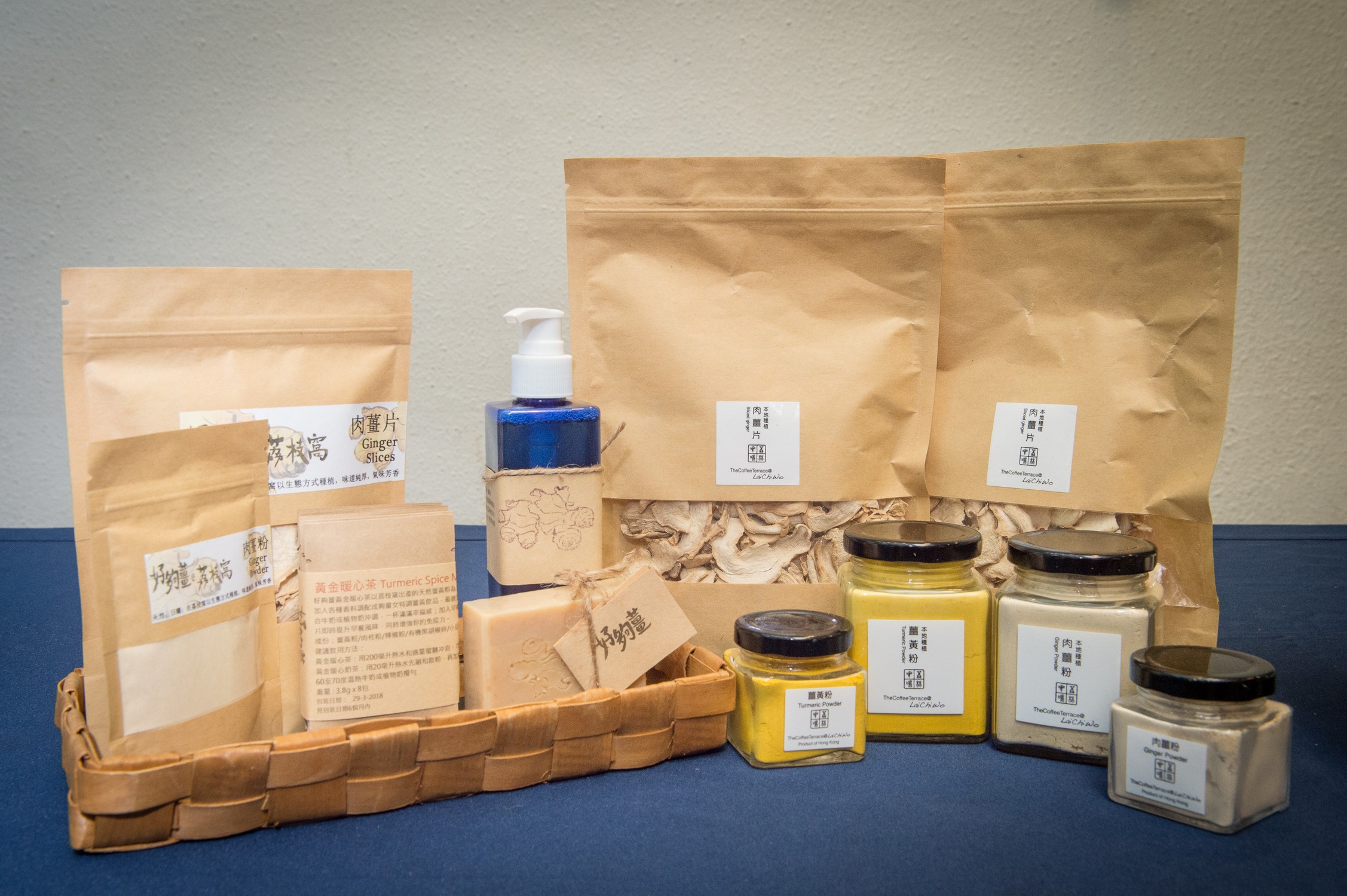
Stakeholders’ views
Here we present the views of some stakeholders involved in Lai Chi Wo’s sustainable agriculture development. These views illustrate some of the major benefits and key challenges of practising sustainable agriculture in Hong Kong.
The family of Adley Tsang and Maria Wan, new settlers of Lai Chi Wo
“Through natural means, our family hope to improve soil quality and enhance the sustainability of the farmland, for instance, through composting and not removing weeds completely. We also hope to offer a healthy living space for visitors to refresh their souls, heighten their senses and physically connect with the land. We advocate a lifestyle with a healthy diet, strong connections to the land and with nature as the focal point.”
Professor Wai-Fung Lam, Director of the Centre for Civil Society and Governance, The University of Hong Kong
“The ecology- and environment-friendly approach adopted by the programme has greatly reduced the negative impacts of agriculture on the environment, and helped mitigate the adverse impacts of climate change in the long run. The programme has reconnected remote rural areas to the local food supply chain and created new village economic opportunities for local villages.”
Dr Angie Ng, Conservation Manager of the Conservancy Association
“With the eco-friendly farming methods currently adopted, we could see butterflies flitting about, and dragonflies, beetles, and grasshoppers flying about on the fields every day. The richness of biodiversity in farmlands is actually comparable to that of natural habitats. It was a fun experience bringing students to the farmlands. Many of them saw the crops in the field as something new and were surprised to know that those were the ordinary vegetables that they usually ate.”
Ms Katie Chick, Senior Project Manager, Policy for Sustainability Lab, Centre for Civil Society and Governance, The University of Hong Kong
“Although there has been a thriving growth of organic farms and markets in recent years, most of the farms in Hong Kong are restricted to very tiny scale in terms of yield and also size. Shortage of skilful practitioners, suitable machinery and technology are the general problems we are facing, and without legal protection, arable farmlands in Hong Kong which are mainly under private ownership are vulnerable to illegal dumping and urbanisation. It further harms the development of local agriculture. It is crucial to let the wider society understand the multifunctionality of agriculture as well as how developing sustainable agriculture can bring benefits to Hong Kong.”
Now that you have finished reading this e-case, what is your own view about sustainable agriculture?
What would you think are the importance and feasibility of sustainable agriculture in cities where agriculture is no longer part of the economic pillar?
How could an individual member of a consumer society play a part in sustainable agriculture?
How could policy help in realising sustainable agriculture?
© 2019 Centre for Civil Society and Governance at The University of Hong Kong
Except where otherwise noted, contents of this e-case is licensed under a Creative Commons Attribution-NonCommercial-ShareAlike 4.0 License.
![]()


